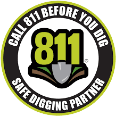Q: What is “DMCA”?
A: DMCA stands for the Digital Millennium Copyright Act, and it was signed into law in 1998. Among other things, the DMCA limits the liability of internet service providers for copyright infringement by customers on their networks. However, ISPs like NU-Z must take certain measures to investigate and reduce copyright infringement violations, or the company may find itself liable for damages.
Q: Is NU-Z monitoring my personal Internet usage?
A: No, the ISP’s role is simply to investigate notifications received by copyright holders when an IP address has been identified as possibly associated with illegal file sharing. The ISP does not share the identity of or any personal information about the customer with the content holders unless requested in a subpoena.
Q: Why have I been charged a fee for a letter saying I violated copyright?
A: As a small, community-oriented company, we focus our resources on providing high-quality phone, broadband, and video services to our consumers. When we receive a notice from a content owner that a customer is potentially violating copyright, we take time to investigate the matter. The charge on your bill reflects the cost of sending a certified letter and the administrative expenses related to responding to the content holder’s warning.
Q: I never shared copyrighted content illegally. Why did I receive a notification?
A: There could be several reasons why you received a notification, even if you personally did not download any copyrighted content. Perhaps a family member or friend in your home inadvertently downloaded the material without understanding that the content was downloaded illegally. Talk it over with anyone who was at your home on the date stated in the notification. Another possibility is that your home network is not secure. If you have any questions about network security, please contact 706-678-4638 immediately and we will be happy to help you.
Q: I just received my third letter and my service is suspended. My child/relative/houseguest/neighbor keeps downloading copyrighted movies on my account and does not care about the consequences. What do I do?
A: NU-Z has consequences too—severe consequences like lawsuits—so we want to try and help our customers enjoy their Internet service and digital content within the confines of the law. If you have received multiple notices but you are concerned that someone in your home will continue the behavior, we can work with you to develop safeguards for your digital devices and network. If we receive another notice from a content holder, we reserve the right to terminate your service temporarily or permanently. We will evaluate circumstances on a case-by-case basis.
Q: What are the risks of “P2P” (peer-to-peer) file sharing?
A. Risks of File Sharing:
Exposure to viruses, spyware, and malware.
Identity theft.
Legal consequences.
Exposure of personal health, financial, tax, employment, and entertainment files stored on your computer.
Put family members at risk of exploitation.
Q: My Internet connection is my only link to the outside world—if you cut me off, I lose access to emergency services, my family, and my job. Will you really terminate my service if someone in my household keeps sharing copyrighted material?
A: We will evaluate service termination on a case-by-case basis. Our Acceptable Use Policy states that we have the right to terminate service in situations where a user repeatedly violates the policy. We must follow that policy ourselves so that we do not risk liability for repeated infringement violations. We don’t want to leave anyone without communications service, but our company could face serious consequences if repeat violators aren’t addressed effectively.
Q. What websites are safe to download movies and music?
A: www.wheretowatch.com, Netflix, Hulu, iTunes, are some examples.
Q. I never engaged in illegal file sharing. The content holder must be making a mistake. How can I clear my name and avoid future notices and consequences?
A. If you have received notice of copyright violation but can clearly show that you (or someone using your network) did not engage in the behavior, you can challenge the decision in court.

